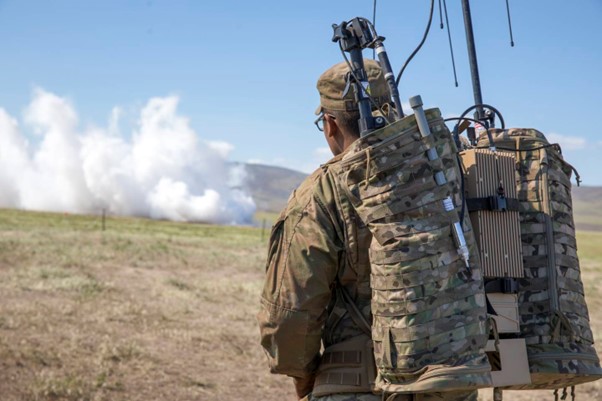The US Army intends to use selected units on overseas deployments to experiment with networks, cyber, electronic warfare, small drones and loitering munitions in order to determine optimal force/asset mixes in a rapidly evolving combat environment, according to General Randy George, Cife of Staff of the Army at an AUSA event in Arlington on 6 February. “We have a starting point, but the view is we’re going to see a lot of refinements in the field,” he said of the initiative, dubbed “transformation in contact”.
The plan envisions frequent adjustments to the size and nature of a combat brigade’s network, its drone deployment, cyber and EW capabilities and the potentially increased use of robotics. Feedback in the form of recommendations based on individual unit experience will be an integral part of the experiment, with answers likely being highly varied, according to George. “Is the EW capability for a cavalry squadron going to be different for an artillery [unit?] and what is going to be different?”
He and other senior military leaders apparently see the employment of new technologies in combat changing on a far shorter timescale than hitherto – perhaps as little as three weeks to three months. Expecting a specific tactical approach to last the duration of a long deployment is no longer valid, it seems. He quoted recent experience underscoring that argument from combat deployments in Syria and Erbil and recent rotations through the Joint Readiness Training Center at Fort Johnson, Louisiana. “What we want to do is be forward and have everyone on the ground and have everyone adjusting that[…] If you’re going over to (US European Command), we’re going to adjust their network, we’re going to give them some of the new systems we have going,” said George.
For more information: AUSA Extra – February 8
(Image: The Army has been using “transformation in contact” in domestic exercises for some time, as this picture of a portable EW systems being demonstrated during Joint Warfighting Assessment 19 shows. Credit: US Army/SPC Audrey Ward)




